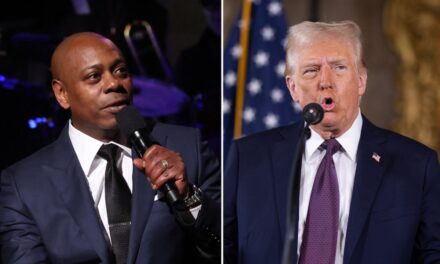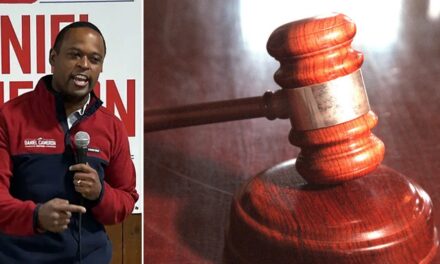In the ongoing political landscape, former President Donald Trump has made significant strategic adjustments in response to what he terms “brazen election interference.” These claims have been fueled by a recent poll conducted in Iowa, a key state in the presidential primary process.
The Iowa pollster in question has become a focal point of contention for Trump and his supporters, accusing the pollster of orchestrating efforts that undermine the integrity of the voting process. This accusation is not new in the political arena, as Trump has frequently claimed that various organizations and individuals have conspired against him since the 2016 election, extending into his tenure and post-presidency.
With Trump preparing for another presidential run in 2024, his campaign is focusing closely on battleground states like Iowa, which holds significant sway in determining the Republican nominee. The nature of polling and public perception is critical in shaping the electoral landscape, and any perceived manipulation could have severe implications for the candidates involved.
The former president’s rhetoric surrounding election integrity has resonated deeply with a segment of the American populace that shares his concerns regarding election protocols. In the eyes of many supporters, this situation intensifies the ongoing narrative of “election integrity” that has become a rallying cry within Republican circles. Fear of election fraud has maintained a presence in campaigns since the contentious 2020 election.
Trump’s campaign has begun to circulate messaging narratives that suggest the Iowa pollster’s results are not merely flawed but indicative of a larger scheme to skew public perception and sway voter sentiment. This strategy aims to discredit not only the specific polls but also any data that indicate that public support for Trump may be weakening as the election approaches.
As a response, Trump held numerous rallies in Iowa, specifically targeting his argument of election interference while emphasizing the importance of voter integrity procedures throughout the state. Supporters filled the arenas, ensuring a robust demonstration of loyalty to his message. The palpable energy at these events signals a continued commitment from many constituents to Trump, despite broader challenges depicted in public opinion surveys.
The messaging from Trump’s camp is tactical, tapping into the fears many Americans have of losing their democratic rights through perceived fraudulent practices. By framing the conversation around election interference, Trump effectively shifts the narrative to one where he portrays himself as a defender of democracy against corrupt forces.
This shift in battleground strategy also highlights a broader tendency within Trump’s political maneuvers. In previous campaigns, he has often underplayed the importance of poll numbers, focusing instead on energizing his base through direct engagement and fiery speeches. As his campaign evolves, he is integrating targeted responses to polling data, particularly from states with substantial political weight, like Iowa.
Polling in political contexts serves as a double-edged sword. While it can propel candidates to greater recognition and legitimacy, adverse poll results can pose threats to their viability. Trump is keenly aware of this dynamic, opting to take control of how data is perceived by actively questioning its validity.
Experts suggest that this strategy will garner mixed reactions. Some analysts argue that casting doubt on polling data will resonate with hardcore supporters and embolden them to participate. Others maintain that such rhetoric could alienate moderate voters who might see bold claims about election interference as fringe conspiracy thinking rather than legitimate concerns.
The response from the media and political opponents has been swift and critical. Many have pointed out the irony in Trump’s claims, given his administration’s own controversial stances during the 2020 election cycle, which frequently involved accusations against the opposing party. Furthermore, opponents argue that these tactics essentially serve as a distraction technique, meant to redirect attention from pressing issues such as the economy, healthcare, and national security, which voters might prioritize as the election season progresses.
As Trump continues his campaign, he remains unapologetic in his rhetoric, depicting himself as the champion of the ordinary citizen fighting against elite interests. He accentuates the dichotomy between “the people” versus “the system”—a narrative that has fueled not only his initial ascent to power but has remained a cornerstone of his political identity.
Additionally, Trump’s alignment with grassroots organizations amplifying voter integrity efforts indicates a significant mobilization effort aimed at both communicating the core campaign message and ensuring maximum turnout during voter registration drives. These grassroots movements play a crucial role in solidifying support and might prove essential in states such as Iowa, where local mobilization can influence statewide outcomes.
As the 2024 election cycle heats up, analysts will be closely watching how Trump’s reframing of the election interference narrative impacts voter sentiment, particularly among independents and undecided voters critical to success in battleground states.
Moreover, Trump’s evolving relationship with major polling entities may play a pivotal role in shaping strategies going forward. If his approach succeeds in galvanizing his base while neutralizing potential negative perceptions from poll results, it could mark a strategic triumph for his campaign. Conversely, if these claims backfire, it could lead to greater scrutiny and diminish enthusiasm leading into election season.
As the political landscape continues to shift, the clarity of Trump’s positioning on these key issues will likely be tested throughout the election cycle. The ongoing conversation surrounding election integrity—and perceptions of interference—will remain a critical component of American political discourse moving into 2024.
In summary, as Trump repositions his strategies based on claims of election interference propagated by an Iowa pollster, the implications for his campaign and the broader Republican Party landscape are significant. The effectiveness of these strategies will be closely scrutinized as both he and his opponents vie for influence in crucial battleground states, making the final months leading up to the election an exhilarating yet tense period for political observers and citizens alike.
































